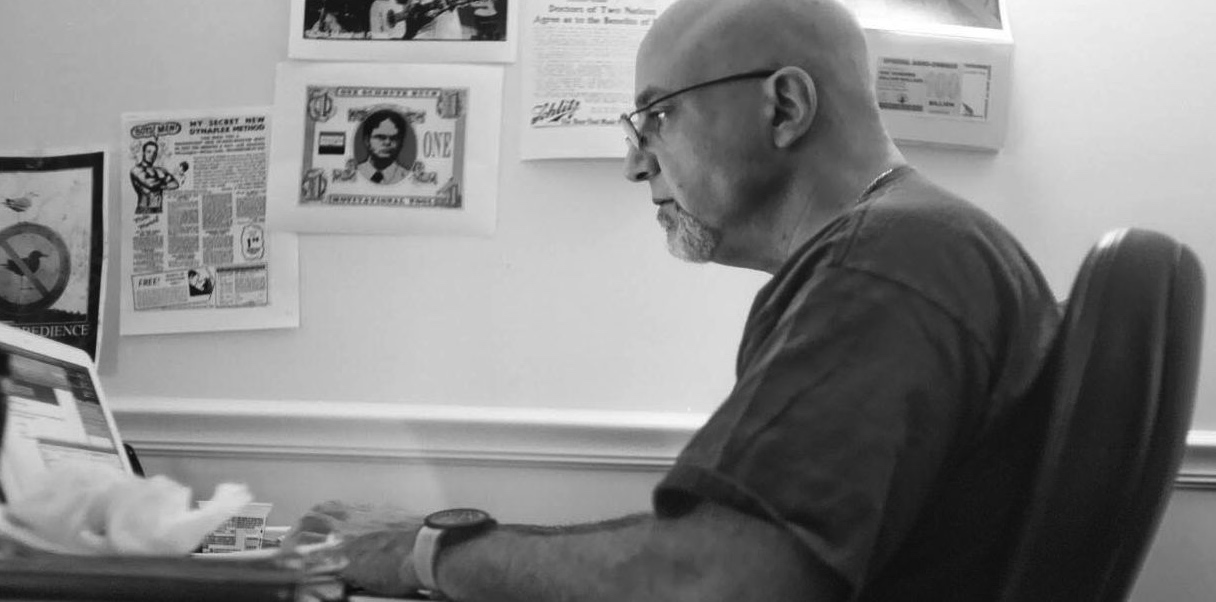Atlas Shrugged – Day 031 – pp. 304-313
But Hank has other struggles besides business and politics.
His personal dalliances have left him in a swamp of moral turpitude. (Turpitude, I like that word. Sounds messy.)
Back in Rome WI, Mayor Bascom had remarked about the woman “who was not Hank’s wife.”
It enraged Rearden — it was none of his business. Dagny was more philosophical. He was just making an observation, not a judgement. But it seems to Hank, everyone is judging him.
Now, in his office, he realizes she was right.
He had no right to condemn anyone — he thought — to denounce anything, to fight and die joyously, claiming the sanction of virtue.
“Who am I to cast the first stone . . . Dagny, he thought, Dagny, if this is the price I have to pay, I’ll pay it . . . He was still the trader who knew no code except that of full payment for his desires.”
He makes his way home and sneaks into his room. Lillian enters.
They banter a bit about love and devotion. Unclear if Lill knows he’s stepping out yet. But there are some interesting character revelations:
She asks if he would be interested in the events of her day. “If it’s the truth you want — not in the least.” (Atta boy, Hank.)
But what if it’s not the truth she wants?
He’s dumbstruck. (Who wouldn’t want the truth?)
“Now you see, that’s the curelty of conscientious people. You wouldn’t understand it — would you? If I answered that real devotion consists of being willing to lie, cheat and fake in order to make another person happy — to create for him the reality he wants, if he doesn’t like the one that exists. . . ”
“It’s really very simple. If you tell a beautiful woman that she is beautiful, what have you given her? It’s no more than a fact and it has cost you nothing. But if you tell an ugly woman that she is beautiful, you offer her the great homage of corrupting the concept of beauty. To love a woman for her virtues is meaningless. She’ s earned it. It’s a payment, not a gift. But to love her for her vices is a real gift, unearned and undeserved. To love her for her vices is to defile all virtue for her sake — and that is a real tribute of love, because you sacrifice your conscience, your reason, your integrity and you incaluable self-esteem”
Wow. Let’s see, praising virtue as virtuous costs nothing morally, but praising vice as the same costs you your conscience and that, for a conscientious person, is the highest price they can pay. I suppose the ends would have something to do with the sacrifice. I guess that makes some kind of sense. But what about for a liar? Someone whose moral currency is fiat, who will say anything to achieve their own ends?
Nah. Lillian’s one of them. (Plus she’s stirred up even more angst in Hank. — Here’s a question, is Lillian doing this on purpose? Or doesn’t she know better?)
Let’s go back to Dagny. She’s back on the road in search of the inventor of the motor.
She’s made her way to Eugene Lawson (“the banker with a heart”) of the Community National Bank of Madison – whose fiscal irresponsibility and bankruptcy forced the people of “dirt town, USA” that Hank and Dagny met to use stoves as storage and dine on wilted cabbage.
“I am not ashamed of it,” said Eugene Lawson. . . . “No moral guilt can be attached to me, inasmuch as I lost everything I posessed in the crash of that bank. It seems to me that I would have the right to feel proud of such a sacrifice.”
That’s talk from his office in Washington. Wonder what the dirt farmer giving directions to nowhere would think.
Dagny wants to know the names of the owners of the motor company. Lawson wants to go on absolving himself.
“I shall be glad to answer any question. I have nothing to hide . . . If you thought that subject was embarrassing to me, you were mistaken. . . [the owners] were perfectly good men. . . I am speaking in human terms, not in the terms of cold cash. . . I placed their fortune in the service of a higher ideal. . . . My rewards were tears of gratitude in their eyes. . “
That’s enough of this shit.
He has no recollection of any of the engineers. No knowledge of what motor project they were working on . . .
“Motor? What motor, Miss Taggart? I had no time for details. My objective was social progress, universal prosperity, human brotherhood and love. Love, Miss Taggart.”
But perhaps just the name of the guy who headed the corporation you lent the money to?
“Oh him? Yes I remember him. His name was Lee Hunsacker. A very worthwhile young man, who’s taken a terrible beating.” (Well, he must be a saint, then)
These pages are a pathetic and yet somehow delightful scene. The collective- community- public [weak-undeserving-unearning] mentality of the public is played out nicely here. Almost a little too heavy handed by Rand. Still, I guess in her message there’s no room for doubt. But let’s close it out with a final word from Dagny:
“Miss Taggart, I can proudly say that in all my life I have never made a profit!”
“Mr. Lawson, I think I should let you know that of all the statements a man can make, that is the one I consider most despicable.”
Let’s go find Lee Hunsacker
